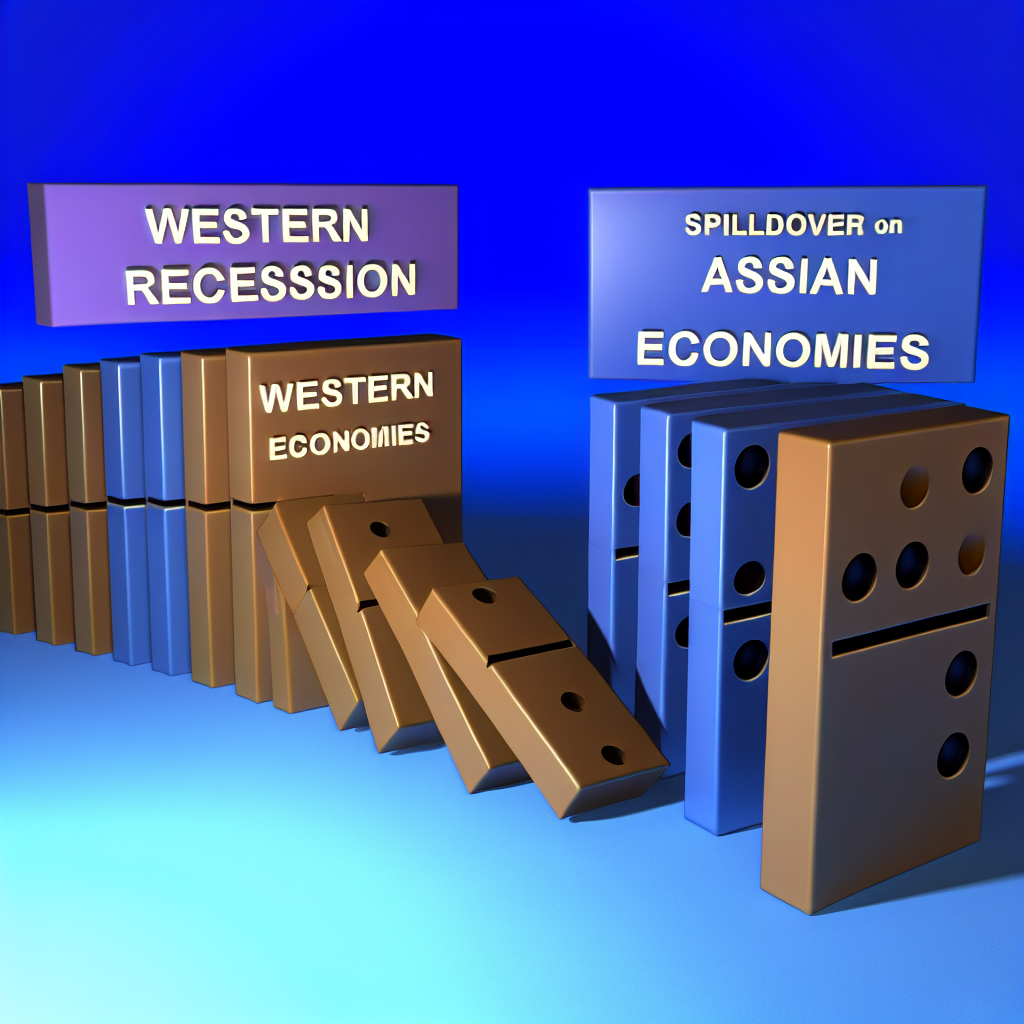The Western Recession Risk: Preparing Asian Economies for Potential Spillovers

As the global economy becomes increasingly interconnected, the repercussions of economic downturns in one region can have far-reaching effects on others. The potential for a recession in Western economies, particularly in the United States and Europe, poses significant risks for Asian economies. This article explores the implications of a Western recession, the channels through which spillovers may occur, and strategies that Asian economies can adopt to mitigate these risks.
Understanding the Western Recession Risk
The risk of a recession in Western economies is influenced by various factors, including inflation rates, interest rates, and geopolitical tensions. As of late 2023, several indicators suggest that Western economies are facing headwinds:
- Rising inflation rates leading to tighter monetary policies.
- Supply chain disruptions exacerbated by geopolitical conflicts.
- High energy prices impacting consumer spending and business investments.
These factors can lead to reduced consumer confidence and spending, which are critical drivers of economic growth. A slowdown in Western economies can result in decreased demand for exports from Asian countries, thereby affecting their economic stability.
Channels of Spillover to Asian Economies
Asian economies are particularly vulnerable to spillovers from a Western recession through several channels:
- Trade Linkages: Many Asian countries rely heavily on exports to Western markets. A decline in demand can lead to reduced production and job losses.
- Financial Markets: Global financial markets are interconnected. A downturn in Western stock markets can lead to capital flight from emerging markets, including those in Asia.
- Investment Flows: Western companies may cut back on foreign direct investment (FDI) in Asia during a recession, impacting growth prospects.
For instance, during the 2008 financial crisis, countries like South Korea and Thailand experienced significant declines in exports to the U.S. and Europe, leading to economic contractions.
Case Studies: Past Recessions and Their Impact on Asia
Historical precedents provide valuable insights into how Asian economies have responded to Western recessions:
- 1997 Asian Financial Crisis: Triggered by the devaluation of the Thai baht, this crisis was exacerbated by reduced demand from Western economies, leading to widespread economic turmoil across Asia.
- 2008 Global Financial Crisis: The crisis led to a sharp decline in exports for countries like China and Japan, resulting in significant GDP contractions and increased unemployment rates.
These examples underscore the importance of preparedness and resilience in the face of external economic shocks.
Strategies for Mitigating Spillover Risks
To safeguard against the potential impacts of a Western recession, Asian economies can adopt several strategies:
- Diversification of Trade Partners: Reducing reliance on Western markets by expanding trade relationships with emerging economies in Africa and Latin America.
- Strengthening Domestic Demand: Implementing policies that stimulate local consumption and investment to buffer against external shocks.
- Enhancing Financial Resilience: Building robust financial systems that can withstand capital outflows and market volatility.
Countries like Vietnam and India have already begun to diversify their trade partnerships and invest in domestic industries to reduce vulnerability to Western economic fluctuations.
Conclusion: Preparing for Uncertainty
The risk of a recession in Western economies presents a significant challenge for Asian countries. However, by understanding the channels of spillover and implementing proactive strategies, these economies can enhance their resilience. Historical lessons from past recessions highlight the importance of diversification, domestic demand stimulation, and financial robustness. As the global economic landscape continues to evolve, Asian economies must remain vigilant and adaptable to navigate potential downturns effectively.





